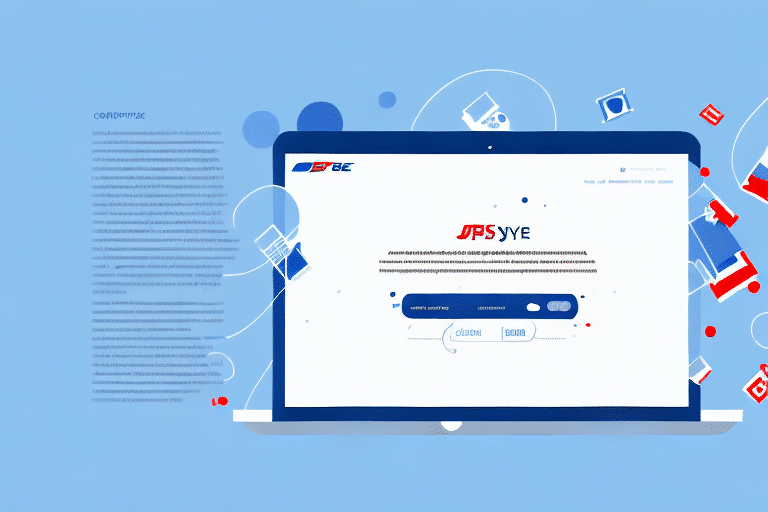How to Connect, Optimize, and Manage USPS for SPS Commerce Fulfillment
USPS is a widely used carrier for SPS Commerce Fulfillment, and for good reason. With their national presence, comprehensive tracking options, and variety of shipping methods, USPS offers an effective and affordable solution for shipping needs. If you're considering using USPS for your SPS Commerce Fulfillment, it's important to understand the shipping process, set up and optimize your shipping, manage costs, track shipments, and integrate USPS with other carriers for seamless operations.
Why USPS is a Popular Choice for SPS Commerce Fulfillment
Extensive National Coverage
USPS is a popular choice for SPS Commerce Fulfillment due to its extensive national presence. With over 43,000 post offices across the United States, USPS ensures reliable delivery options to both urban and remote areas. This vast network allows businesses to reach customers in locations that other carriers might find challenging, enhancing overall delivery efficiency.
Competitive Pricing
USPS offers competitive pricing for both domestic and international shipping. According to the USPS Business Pricing, businesses can benefit from discounted rates, especially when shipping in volume. This makes USPS an ideal choice for businesses aiming to reduce shipping costs without compromising on service quality.
Commitment to Sustainability
USPS has implemented various eco-friendly initiatives, such as using alternative fuel vehicles and optimizing delivery routes to reduce their carbon footprint. These efforts align with the values of many businesses and consumers who prioritize sustainability, allowing SPS Commerce Fulfillment to contribute to a greener future.
Comprehensive Tracking and Convenient Services
USPS provides a range of convenient services that streamline the shipping process. Their online platform enables users to print shipping labels, schedule pickups, and track packages in real-time. This level of integration saves time and effort, allowing businesses to focus on other critical aspects of their operations.
Understanding the USPS Shipping Process for SPS Commerce Fulfillment
Creating and Processing Shipping Labels
The USPS shipping process begins with creating and processing shipping labels. Businesses can use the USPS Online Shipping Tool to generate labels efficiently. Selecting the appropriate shipping method and adding necessary details ensures that packages are correctly routed and delivered on time.
Arranging Pickup or Drop-Off
After generating shipping labels, businesses can arrange for package pickups or opt to drop them off at designated USPS locations. Scheduling pickups through the USPS website can save time and streamline the fulfillment process, especially for high-volume shipments.
Tracking Shipments
USPS offers robust tracking options that allow businesses to monitor the status of their shipments in real-time. Utilizing these tracking tools helps ensure transparency and provides valuable insights into delivery performance.
Package Weight and Size Restrictions
USPS has specific guidelines regarding package weight and size. Adhering to these restrictions is crucial to avoid additional fees or delivery delays. Businesses should accurately measure and weigh packages to ensure compliance with USPS standards.
How to Set Up and Optimize USPS Shipping for SPS Commerce Fulfillment
Creating a USPS Account
The first step in setting up USPS shipping for SPS Commerce Fulfillment is creating a USPS account. This account provides access to essential shipping tools and discounted rates, which can significantly reduce shipping costs. Visit the USPS Business Mail Services page to get started.
Optimizing Shipping Settings
Adjusting shipping settings to align with business needs is essential for optimization. This includes configuring delivery speeds, selecting appropriate package sizes, and enabling tracking options. Additionally, businesses can opt to add insurance to shipments or request carrier pickups to enhance efficiency.
Accurate Package Measurement
Accurately measuring and weighing packages is vital to comply with USPS guidelines. Utilizing USPS-provided shipping supplies, such as boxes and envelopes, ensures that packages are properly sized and protected during transit, minimizing the risk of damage or rejection.
Tips for Managing USPS Shipping Costs for SPS Commerce Fulfillment
Leverage Volume-Based Discounts
Businesses that ship frequently can benefit from becoming a USPS volume-based shipping partner. According to the USPS Business Pricing, higher shipping volumes can unlock significant discounts, reducing overall shipping expenses.
Optimize Packaging
Efficient packaging can lead to substantial cost savings. Using flat-rate boxes or regional rate boxes offered by USPS can be more cost-effective than standard packaging, especially for heavy or bulky items.
Utilize Free Shipping Supplies
USPS provides a variety of free shipping supplies, including boxes, envelopes, and labels. Incorporating these free resources into the shipping process can help businesses save on packaging materials.
Implement Shipping Software
Deploying advanced shipping software can streamline shipping operations, enabling businesses to compare rates, manage shipments, and reduce manual errors. This not only saves time but also helps in identifying the most cost-effective shipping options.
Best Practices for Tracking USPS Shipments in SPS Commerce Fulfillment
Real-Time Tracking Tools
USPS offers comprehensive tracking tools through their website and mobile app, allowing businesses to monitor shipments in real-time. Utilizing these tools ensures transparency and helps in promptly addressing any delivery issues.
Integration with Shipping Software
Integrating USPS tracking with third-party shipping software can enhance tracking capabilities. This integration allows for automatic updates and centralized tracking, making it easier to manage multiple shipments simultaneously.
Communicating with Customers
Providing customers with tracking information improves their experience and reduces inquiries. Automated emails and website notifications can keep customers informed about their order status, fostering trust and satisfaction.
Handling Lost or Delayed Packages
Having a system in place to handle lost or delayed packages is crucial. This includes initiating searches with USPS or providing replacement shipments to maintain customer trust and loyalty.
Common Issues with USPS Shipping and How to Resolve Them in SPS Commerce Fulfillment
Lost or Delayed Packages
Despite its reliability, USPS shipping can sometimes result in lost or delayed packages. To mitigate these issues, ensure accurate packaging, correct shipping labels, and proper address verification. In cases of lost or damaged packages, businesses can file claims through the USPS Claims Process for reimbursement.
Incorrect Tracking Information
Incorrect tracking information can lead to confusion and customer dissatisfaction. To prevent this, double-check tracking numbers and ensure that packages are scanned at each stage of the shipping process. Utilizing SPS Commerce Fulfillment's real-time tracking updates can help address tracking discrepancies promptly.
Integrating USPS with Other Carriers for Seamless SPS Commerce Fulfillment
Benefits of Multi-Carrier Integration
Integrating USPS with other carriers like FedEx and UPS can provide backup options and enhance delivery efficiency. This integration allows businesses to compare rates and shipping times, selecting the best carrier based on specific shipment needs.
Cost Savings and Expanded Shipping Options
By leveraging multiple carriers, businesses can optimize shipping costs and expand their delivery capabilities. Comparing rates across carriers can help in selecting the most cost-effective option for each shipment, especially for high-volume businesses.
Enhanced Shipping Capabilities
Multi-carrier integration allows businesses to offer a variety of shipping options, catering to different customer preferences and regional delivery requirements. This flexibility can attract a broader customer base and improve overall service satisfaction.
How to Improve Customer Experience with Efficient USPS Shipping in SPS Commerce Fulfillment
Accurate and Reliable Tracking
Providing accurate and reliable tracking information is essential for enhancing the customer experience. Ensuring that customers can easily monitor their shipments builds trust and reduces anxiety related to order deliveries.
Multiple Shipping Options
Offering a range of shipping options, such as standard, expedited, and priority shipping, allows customers to choose the method that best fits their needs. This flexibility can lead to higher customer satisfaction and repeat business.
Effective Communication
Maintaining open lines of communication with customers throughout the shipping process is crucial. Sending order confirmations, shipping notifications, and delivery updates keeps customers informed and engaged, fostering a positive relationship with the brand.
Responsive Customer Service
Implementing a responsive customer service system to address shipping issues promptly can significantly enhance the overall customer experience. Quick resolution of problems related to lost or delayed packages ensures customer loyalty and positive word-of-mouth referrals.
Using Data Analytics to Monitor and Improve USPS Shipping Performance in SPS Commerce Fulfillment
Identifying Shipping Trends
Utilizing data analytics helps businesses identify shipping trends and patterns. This information can be used to make informed decisions about shipping strategies, such as adjusting shipping volumes or optimizing delivery routes to enhance efficiency.
Evaluating Performance Metrics
Monitoring key performance indicators (KPIs) like delivery times, shipping costs, and error rates provides valuable insights into shipping performance. Analyzing these metrics allows businesses to pinpoint areas needing improvement and implement necessary changes.
Proactive Issue Resolution
Data analytics enables businesses to identify potential issues before they escalate. For instance, recognizing a pattern of delayed shipments to a specific region allows for timely interventions, such as adjusting carrier preferences or enhancing packaging methods.
Cost Optimization
Analyzing shipping data over time helps in identifying opportunities to reduce costs. Strategies such as consolidating shipments, optimizing package sizes, and selecting the most cost-effective carriers can lead to substantial savings.
Enhancing Customer Experience
Leveraging data analytics to monitor shipping performance ensures timely deliveries and reliable service. This proactive approach not only improves operational efficiency but also enhances the overall customer experience, leading to increased satisfaction and loyalty.
By integrating these strategies and best practices, SPS Commerce Fulfillment can effectively connect, optimize, and manage USPS shipping operations, ensuring reliable service and cost-effective solutions for their business needs.




















